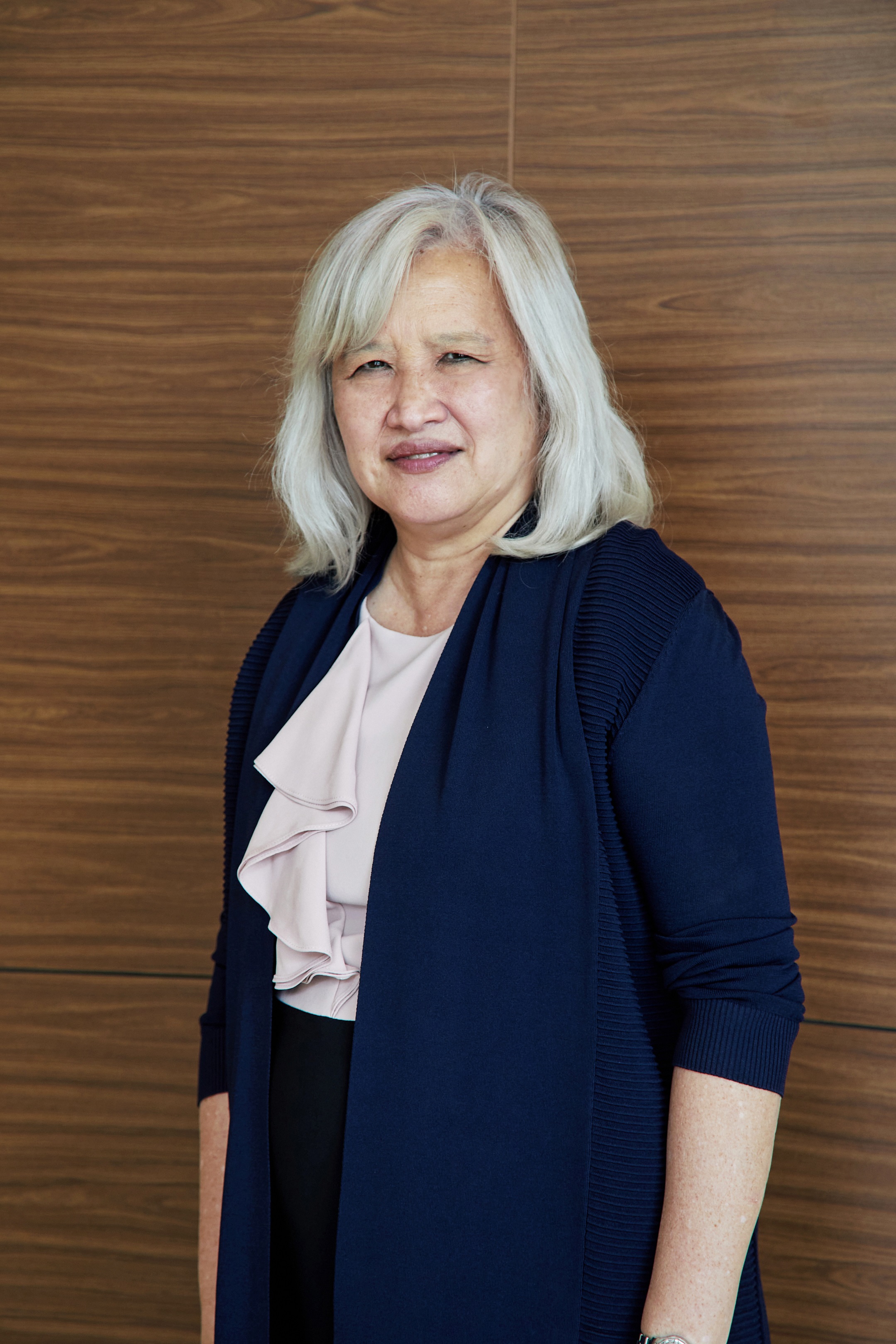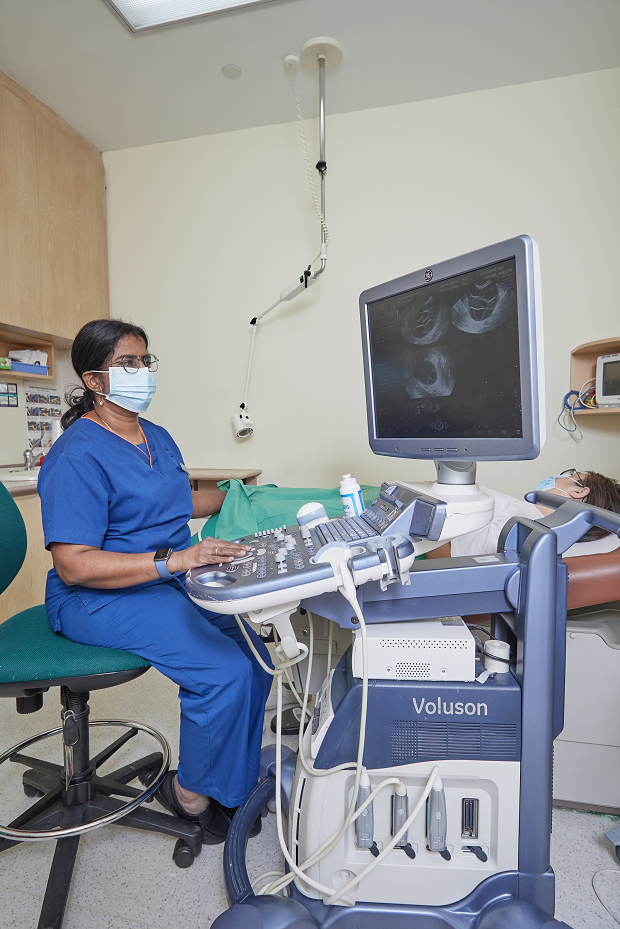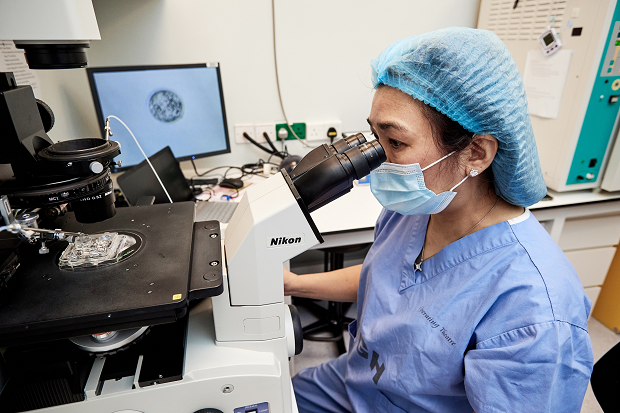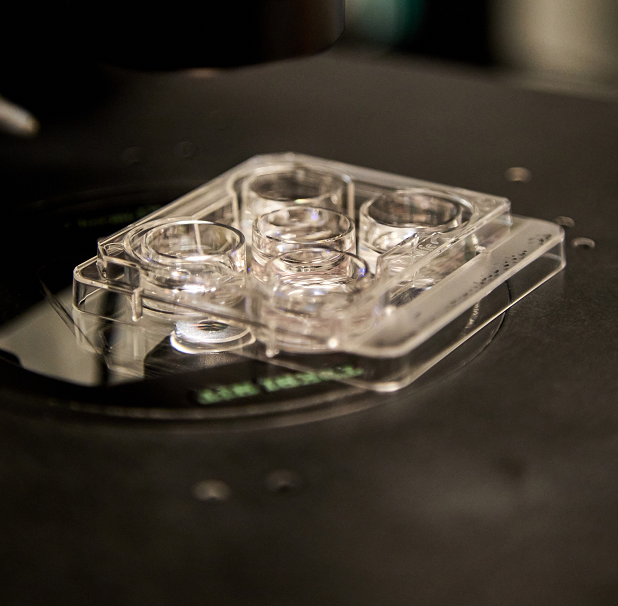Getting pregnant is not as easy as many people think, and artificial means of conception does not guarantee success. An SGH-KKH study is aiming to find out if heightening awareness of conception issues will encourage couples to start a family earlier than later.
A typical Singaporean couple, Celeste and Terry (not their real names), married when they were both 29. A year after, they began trying for a baby but found it more difficult than they had envisaged. They then turned to various fertility therapies, including in-vitro fertilisation (IVF), but found they had poor quality eggs and other difficulties. It was only in 2021 — three years after they began trying, and on her third IVF cycle — that Celeste became pregnant. The couple was fortunate.
“Some couples stay childless despite multiple cycles of assisted reproductive technology, especially if they are over 40 years of age and the success rate is very low,“ said Associate Professor Yu Su Ling (below), Senior Consultant, Department of Obstetrics and Gynaecology, Singapore General Hospital (SGH).

Dr Chua Ka Hee (below), Consultant, Department of Reproductive Medicine, KK Women’s and Children’s Hospital (KKH), added that as in many developed economies, couples in Singapore are putting off childbearing till later for career building and other reasons.

“By the time the couple comes for treatment, it is sometimes a bit too late. Age-related decline is irreversible,” said Dr Chua.
Reproductive technology includes methods like oral medications and hormone injections to promote growth or maturation of the eggs in women, and introducing sperm into the womb during ovulation.
With experiences like Celeste and Terry’s, the doctors formed a team to study how to help Singapore couples better plan for a family and with less heartache. Backed by the Prime Minister’s Office, the SGH-KKH study wants to determine if a better understanding of fertility issues and fertility treatments might influence them in their decision-making.

<<Senior Principal Sonographer Vijeyaletchimi Nadasan perfoms a
procedure called follicle tracking, where she measures and counts the
follicles (ovary sacs filled with immature eggs) until they mature and
are ready to be retrieved.>>
Known as
The Effect of Fertility Health Awareness Stategies on Fertility Knowledge and Childbearing in Young Married Couples, or FertStart, the study also aims to understand young couples’ attitudes and impediments to starting a family early. For instance, some couples have reportedly pushed back plans to start a family amid greater uncertainties brought on by the COVID-19 pandemic.
But above all, said Prof Yu, who is also Director of SGH’s Centre for Assisted Reproduction (CARE), “we need to let them know that infertility increases with age for both men and women”.
FertStart has begun enrolling young couples since the start of 2021 through SingHealth polyclinics and at both hospitals.
Participants are randomly assigned to one of three groups. One group undergoes fertility health screening, a doctor’s consultation, and standard reproductive counselling by a trained nurse. Participants in a second group have to download an educational brochure and watch an online video about other couples discussing their fertility issues. They will then complete a short survey, which includes recommended actions. These activities do not require the participants to visit the hospital.

<<During the IVF procedure, Senior Principal Embryologist Amy Lee mixes mature eggs with sperm in the laboratory. After the eggs are fertilised (a sperm penetrates the egg, which then starts dividing), the developing embryos are placed in the uterus. Sometimes, assisted hatching or a small crack is first made in the outer embryo shell (above and below, an embryo culture dish).>>

“Some of the couples who watch the video may have the same difficulties or may not have been aware of the infertility causes mentioned. Through this exercise, they may try to start pregnancy early,” said Dr Chua.
The last group will do and receive nothing. As the control group, its findings will be used for comparison in areas such as the effectiveness of the interventions given to the other groups. Four months after, participants in the second and third groups will receive an email to remind them of the key facts about the drop in fertility with age. At the six-month mark, they will receive another email, a follow-up survey; and after about seven months, selected couples will undergo a feedback interview with the researchers. The study is expected to run for about three years.
Get the latest updates about Singapore Health in your mailbox! Click here to subscribe.
Who can take part in FertStart
• Married couples who are Singapore citizens or permanent residents
• The wife is aged between 25 and 34 years, and is not currently pregnant
• They have no children (including children from previous marriages)
• They have not undergone fertility treatment before
• They have no history of ectopic pregnancies
• They are able to complete a survey in English
Common causes of infertility
Damaged or blocked fallopian tubes, polycystic ovary syndrome, endometriosis, fibroids and polyps, early menopause, and advanced maternal age (35 years or older) are some common causes of infertility in women. Male fertility, meanwhile, can be affected by low or no sperm count, or poor sperm motility (movement).
Increasing pregnancy chances
Ovulation usually occurs 14 days before menstruation starts, and is the most fertile day of the cycle. If the menstrual cycle is 26 days, ovulation is on day 12. IVF is not recommended if the body mass index is more than 35 or less than 19, as the chance of success is significantly lower with higher risks. Being overweight or underweight has a dramatic effect on female fertility, with ovulation periods being irregular or absent.
Improving sperm count and quality
• Quit smoking, reduce alcohol intake, and avoid recreational drugs
• Avoid hot baths
• Improve general fitness
It may take three months for the sperm count and sperm quality to improve after lifestyle changes.
